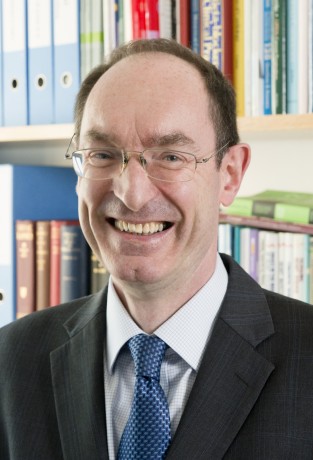
Professor John McMurray
A LETTERBREEN-born professor is at the helm of a new drug believed to cause a 20 per cent reduction in heart failure deaths which has been hailed as a “major advancement” of treatment.
Professor John McMurray, a principal researcher and head of Cardiology at the University of Glasgow, spearheaded the trials which led to the “remarkable” discovery of the new drug named LCZ696.
The groundbreaking treatment stirred excitement among heart specialists at last week’s European Society of Cardiology congress in Barcelona.
The drug is said to produce better survival rates than the current treatment, known as enalapril, which has been used by health professionals for the last 25 years.
Professor McMurray is a nephew of well-know bus owner, Benny McMurray, Letterbreen. He explained that the team has been trying to improve the outlook for people for many years.
“The reason way this has been such a splash is because we did not to try and add another treatment but what we asked ourselves was: “can we do better than current goal standards?”.
“We have been using this drug for the last 25 years, so to be able to improve on that after such a long time was much more remarkable.
“We improved survival, reduced admissions, we made people feel better. It was a pretty amazing finding.
Approximately, 30,000 people in the north suffer from heart failure, making it one of the most deadly conditions here.
It is a chronic condition where the heart doesn’t pump properly because the muscle has been damaged, and that causes people to feel breathless and fatigued.
Professor McMurray along with a colleague and his team studied 8,500 people over a five-year period.
He explained the benefits of the new treatment.
“There’s a 21 per cent reduction in hospital admissions for heart failure, and a 20% reduction in death due to cardiovascular problems.
“Fewer people died (over the 5-year period) and fewer people were admitted into hospital. We also asked patients how they felt about their symptoms, and people said they felt better off.”
Professor McMurray went on: “It knocks out the bad things and enhances the good things that bit more than the conventional treatment, and it looks like doing that bit more has been a big advancement.
“This trial shows that we slow all of that down so people remain stable, their symptoms, hopefully don’t deteriorate as rapidly, they don’t get admitted to hospital as often, and we also improve the survival times so people in the trial lived longer.”
The treatment is now awaiting approval by the regulatory authorities in different countries in Europe through the European Medicines Agency which Professor McMurray hopes to be completed by next year.








